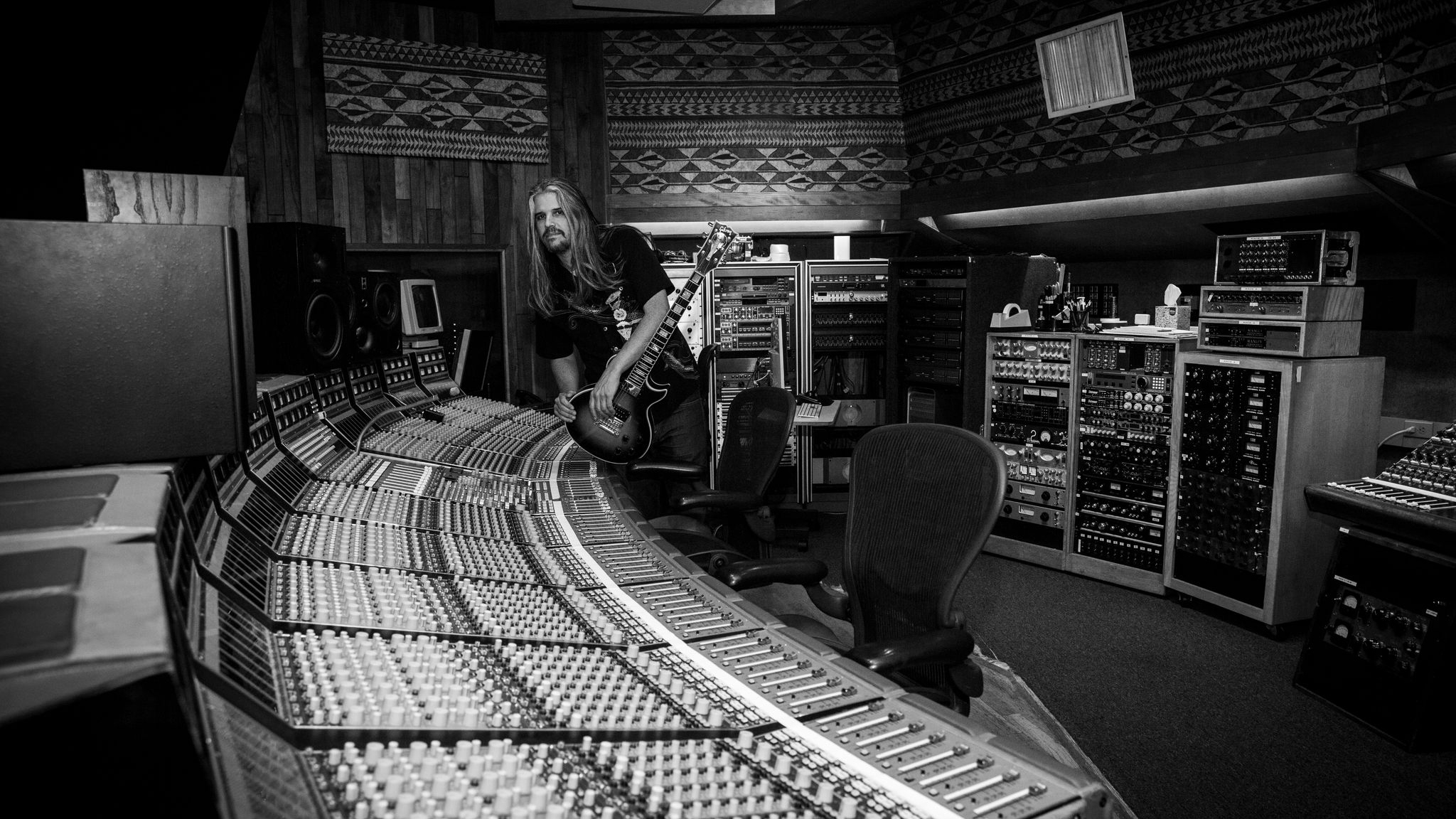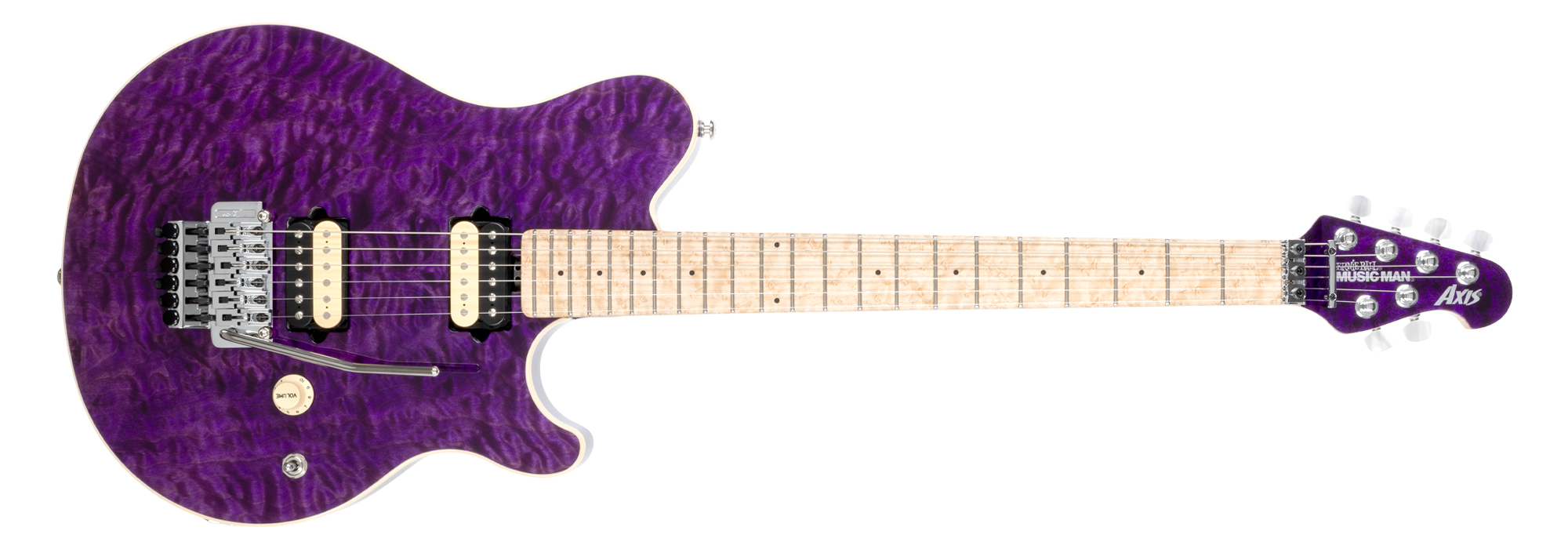
Want all the hottest music and gear news, reviews, deals, features and more, direct to your inbox? Sign up here.
You are now subscribed
Your newsletter sign-up was successful
Guitar players will often tie themselves in knots debating topics as urgent as the difference silicon diodes make to our low-volume bedroom blues noodling. It's ok, we're with you – perception matters to tone. But do the hard facts of weight?
Electric guitar weight, to be precise. Some say heavy guitars have more sustain, others want it slight and light for the same reason. Gordon Smith even included the sub-7lb weight of its new Grandé model as a selling point.
Who is right? Or more, is there any real benefit to your sound by swaying in either direction – especially considering all the other variables involved in how your guitars sound.
A recent chat I had with Thin Lizzy icon Scott Gorham (about the surprise reveal of how artwork and revisiting some old Thin Lizzy songs )was a good opportunity to get his take on it.
Why Mr Gorham? Well, apart from being a guitar icon who's always a joy to speak to, he's a player who moved from a heavier Les Paul Deluxe alongside Brian Robertson and then Gary Moore to a Strat in his post-Lizzy work, to Custom Shop-modified Floyd Rose-equipped Les Paul Axcess models (models also favoured by Alex Lifeson) for live Lizzy gigs and his Black Star Riders shows in more recent times.
"I've heard that same thing for years, you know," begins Scott. "I read an article where Billy Gibbons was talking about the density of the wood and the weight of the wood [Gibbons clearly doesn't buy that density matters as he has the body and necks hollowed out on some of his guitars so they're lighter]. So it's all bullshit, man.
"There's such an array of pedals out there now, that all you've got to do is stomp on a button and you've got it," adds Gorham, suggesting people have put far too much emphasis on the heavier equals better sound argument when there are much more other noticeable influences on tone, and sustain. But he does accept that the way most of us play – at home – will reflect the impact of guitar tonewood density more readily.
Want all the hottest music and gear news, reviews, deals, features and more, direct to your inbox? Sign up here.
It really kind of applies at lower volumes
"I think if it that what you're talking about, it really kind of applies at lower volumes," he reasons. "Where the tone [of the guitar] really does matter more at that point. And there's no pedals involved and all that. Then the density of the wood probably does help out quite a bit. But if you're up there just wailing away [onstage]…"
For Gorham the need to switch from Les Paul Customs to generally lighter-weight guitars wasn't a tonal decision: "Because I've got a bad back that I've had it since I was 17 years old, the lighter the guitar, the better. Gibson even customised a couple of my guitars to make them lighter. So thank you very much, Gibson."
My colleague Daryl Robertson reached a similar crossroads with Les Paul weight, as he explained in this article.
Back in 2016, Gorham explained to us that the Custom Shop chambered his Axcess guitars for weight relief – something that's not unusual for some production model Les Paul guitars elsewhere. "
"They took out some of the wood to make this guitar lighter," he explained. "They've chambered all of my guitars and it's saved [my] back, shoulders and neck now. It's a good idea - if you're looking for a lighter guitar, go that way."

Even when the guitarist and songwriter is sitting down at home to play he still doesn't reach for the '70s Deluxes that were such a visually identifiable part of his work with Lizzy.
"It'll be the Axcess every time," he tells me. "I've had the neck shaved down so it fits my hands a lot better." The Axcess allowed Gorham to reconnect with the shape he loved, without the back strain.
"I just love the shape of the Les Paul," he says. "I've always equated that to a woman, because it's a woman's shape, right? And I've always loved that. That's why I think the Les Paul is such a beautiful guitar, you know? And if I'm gonna go upstairs into my office and flip the amp, I always go for the Axcess."
On the other side of the debate is a man with a back of iron to bear his Gibson Les Paul Custom Silverbursts – made with mahogany and maple he specifically requests the heaviest examples of from Gibson.
“He has a very unique sound," Gibson CEO and President Cesar Gueikian told Dean Del Rey of Tool's Adam Jones in the podcast interview above. "First and foremost, he’s looking for the sound. Second, he wants the heaviest guitars that we can possibly or humanly make. And so we have to source the heaviest maple and the heaviest mahogany that we can find around the world.
“We go scouting to find the heaviest woods that we can find for him," adds Gueikian in the interview above. And that’s because he’s used to playing those ’79 Silverbursts.”
But why would anyone want an extra heavy version of a guitar that can already easily weigh north of 9lbs on a good day?

I like a heavier-weight guitar because I use tube amps
Adam Jones
“He truly believes that it has an effect and that it does affect sound,” Gueikian explains. “So, in his mind, the weight, the finish – the metallic finish – and then the way the guitar is built and the electronics, the profile of the neck, all the specs that make the guitar right in his hands, is what we’re always chasing.”
Jones himself elaborated further with Guitar World earlier this year. "I like a heavier-weight guitar because I use tube amps, I use analog equipment," explained Jones. "So if you plug one of my heavy guitars into my setup, with a pickup that is responsive to that side of things, it sounds great. You get great tone. You get great feedback, but you can still control it."
This adds another perspective – even through the processing of Jones's rig, he finds the heavier guitars make for better sound and easier control over feedback.

Ernie Ball Music Man seems to take a very different view. In a blog on its website explaining why it chooses to use carefully selected basswood for some of its guitar and bass bodies, the company explains that "basswood is very lightweight and produces a fairly even and full to mid-range response throughout the entire bandwidth.
Later the company makes its view on lightweight wood being a preference even clearer. "We choose lightweight cuts of basswood because they tend to sound much better than the heavier ones," it says. "This is something that holds true for most tonewoods, but especially basswood."
Inevitably it's a personal thing – some players prefer lighter guitars because they want them to become part of them by being less conspicuous in weight. They 'disappear' in a sense. I could definitely see the appeal of this for a singer who has to pull double duty with two instruments, if you include their voice.
Me? I'll be sticking around the 7lb sweet spot of my Mustang and SG. It just feels right, before any debate on sound. And you'll probably have your own personal takes and preferences on this subject, or maybe you will in time.

Rob is the Reviews Editor for GuitarWorld.com and MusicRadar guitars, so spends most of his waking hours (and beyond) thinking about and trying the latest gear while making sure our reviews team is giving you thorough and honest tests of it. He's worked for guitar mags and sites as a writer and editor for nearly 20 years but still winces at the thought of restringing anything with a Floyd Rose.

